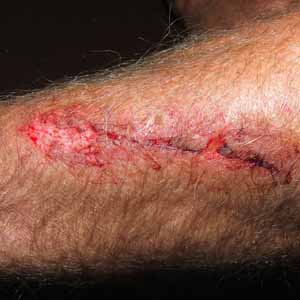Maggot therapy could provide affordable and efficacious wound care in Lebanon and other low- and middle-income countries

Accepted: 2 May 2023
HTML: 142
All claims expressed in this article are solely those of the authors and do not necessarily represent those of their affiliated organizations, or those of the publisher, the editors and the reviewers. Any product that may be evaluated in this article or claim that may be made by its manufacturer is not guaranteed or endorsed by the publisher.
Authors
The poor economic situation, ongoing political instability, and the 2020 Beirut explosion have seriously eroded the capacity of the Lebanese healthcare system. Insecure fuel supplies and the rationing of electricity to a few hours per day make matters worse. New strategies are required to deliver healthcare that is more resilient in the face of ongoing disruption. Maggot therapy for the treatment of chronic and infected wounds could make a meaningful difference in Lebanon. When placed in a wound, medicinal maggots remove dead tissue, control infection and stimulate wound healing. It is an inexpensive, easy to use, and highly efficacious therapy, even under austere conditions. This review provides an introduction to maggot therapy and briefly explains its therapeutic benefits before discussing the role it can play in the Lebanese healthcare system. Finally, the prerequisites and enablers for successful integration of maggot therapy into the Lebanese healthcare system are outlined.
How to Cite

This work is licensed under a Creative Commons Attribution-NonCommercial 4.0 International License.

 https://doi.org/10.4081/hls.2023.11161
https://doi.org/10.4081/hls.2023.11161



